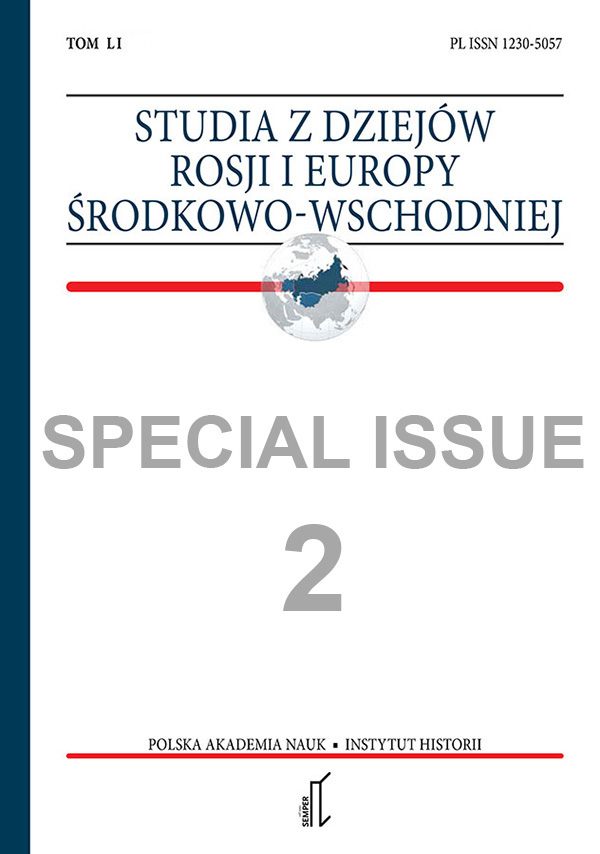Polish foreign policy and role of the armed forces in geopolitical considerations of Lieutenant Colonel Tadeusz Zakrzewski addressed to Prime Minister Władysław Sikorski
Polish foreign policy and role of the armed forces in geopolitical considerations of Lieutenant Colonel Tadeusz Zakrzewski addressed to Prime Minister Władysław Sikorski
Author(s): Dariusz MiszewskiSubject(s): Diplomatic history, Military history, Political history, WW II and following years (1940 - 1949)
Published by: Instytut Historii im. Tadeusza Manteuffla Polskiej Akademii Nauk
Keywords: World War II; Polish-Soviet relations; Central Europe; Polish Government-in-exile; Polish Army
Summary/Abstract: In January 1943, Commander-in-chief and Prime Minister of Poland, General Władysław Sikorski, received a memorandum on the objectives of the Polish foreign policy drawn up by Lieutenant Colonel Tadeusz Zakrzewski (1897–1964), former military attaché in Bucharest (1938–1940). The policy was founded on three pillars: the Polish Armed Forces, the Polish populace, and propaganda. He emphasised that Poland would achieve true victory with the consolidation of its independent existence within its pre-war borders in the east, and strategically expanded borders – at the expense of Germany (East Prussia, Opole Silesia) – in the west. Central and Eastern Europe was to be divided between Poland (Union of Central Europe: Poland, Czechoslovakia, Yugoslavia, Greece, and Hungary) and the USSR (Eastern Union: the USSR, Finland, Latvia, Estonia, and Bulgaria). Romania could choose between the two. Peace and security in the world would rely on the cooperation of regional powers and the relations of states supervised by an international organisation. The durability of the post-war order would be ensured by the universal adoption of democracy, the protection of human and minority rights, extensive trade in commodities and raw materials, and the isolation of warmonger states from the international community.
Journal: Studia z Dziejów Rosji i Europy Środkowo-Wschodniej
- Issue Year: 51/2016
- Issue No: 2
- Page Range: 153-169
- Page Count: 17
- Language: English

